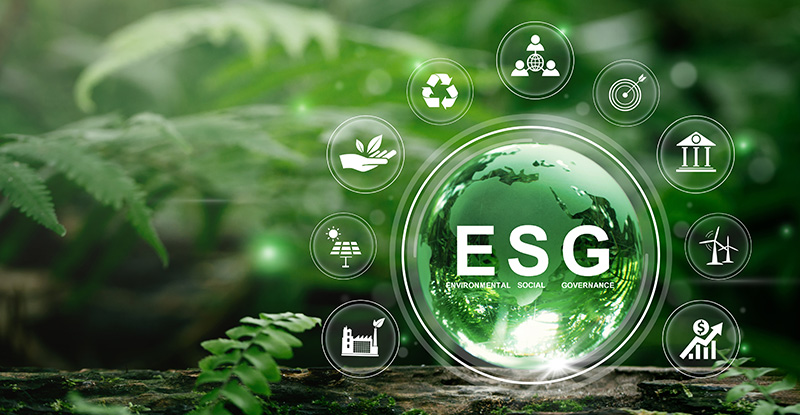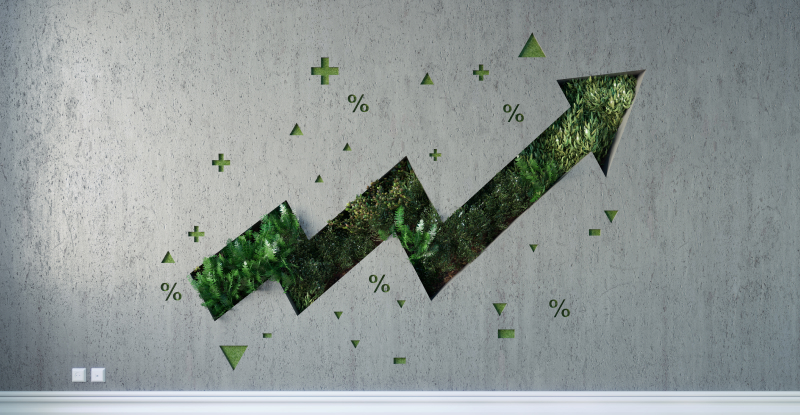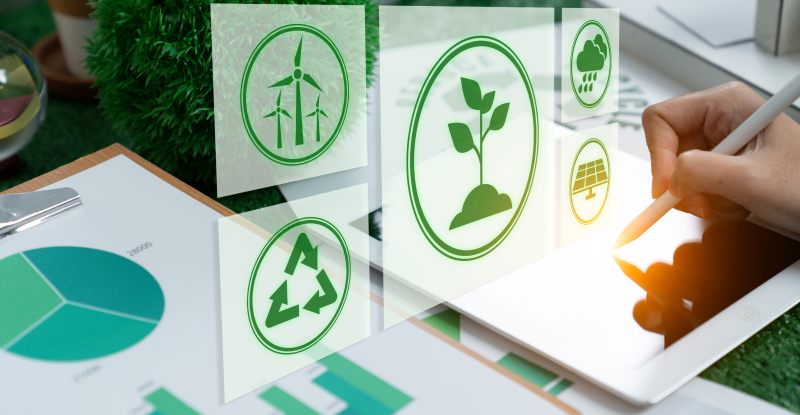
In this podcast episode, CPABC’s vice-president, professional development and learning, Nicola McLaren, CPA, CA, shares some key learning areas and resources to support your ESG learning journey. Part of our Coffee Chats with CPABC podcast series.
Establishment of the International Sustainability Standards Board, Canada's net zero emissions targets, and ESG disclosure requirements for Canadian companies under the Corporate Sustainability Reporting Directive have all increased the spotlight on ESG. As a result, accounting for ESG factors has become an important area of focus for organizations and for CPAs.
Recognizing that CPAs have different levels of expertise in this area, we chatted about ESG through the lens of learning and skills development with Nicola McLaren, CPA, CA, CPABC's Vice President, Professional Development and Learning. She shares below, some learning areas and resources to support members’ ESG learning journeys.
Why is the CPA profession focusing on ESG and what are some of the reasons for CPAs to add related skills and competencies to their toolbox?
Nicola: Let’s start by looking at what ESG stands for - environmental, social, and governance. Those words capture three of the most important topics in our world and society today. As leaders, CPAs are quite correctly at the forefront of the most relevant issues facing our world and our economies and that trickles down into our businesses and organizations.
CPAs need to be staying aware of what's happening in the world and looking at innovations and new developments. There's an old saying along the lines of "What gets measured gets noticed." And CPAs have, at the core of our profession, skills, training, and expertise in measuring, compiling, and reporting on financial data and results. We're also hearing investors, regulators, financers, and customers demand that companies and organizations report on ESG activities, impacts, and data, and CPAs are at the forefront of that reporting activity. It's a natural place for our profession to focus and contribute as it becomes more important throughout society.
Members have different levels of ESG knowledge and expertise. How can CPAs at different stages go about advancing their learning journey?
Nicola: I am not an ESG expert - like most of our members, I am an ESG learner. My goal is to create awareness of some of the areas where ESG will continue to grow in importance for CPAs and how the profession is creating learning opportunities to support our members. We all come at ESG topics with different amounts of knowledge. For example, you may need to learn more about ESG because your company wants to develop more ESG reporting. Someone else may be interested in ESG from the perspective of the investor community. Or you may be passionate about this area due to your ethical perspective and how it aligns with your own values and those of your organization.
Regardless of where you are at, there are learning opportunities available to you. As a net new learner looking for foundational information, CPA Canada has a two-part free webinar series on sustainability, reporting, and assurance. For a little bit more depth, CPABC offers an introduction to ESG reporting series, which will be next offered again in July 2024.
For more in-depth learning beyond that, CPABC and CPA Canada have partnered to offer the first two modules of CPAC’s sustainability and ESG certificate in an on demand format. As well, CPA Canada offers an annual ESG symposium. This year it’s on June 18th in Toronto and in a hybrid format. You don't even have to take a formal course - there are lots of articles and podcasts out there, including in CPABC's Newsroom, Coffee Chats, and CPABC in Focus magazine.
Many CPAs are already working with reporting related to ESG. Tied to that is the question, can sustainability reporting be audited or reviewed? And are there standards related to this?
Nicola: In short, yes. I've met some CPABC members who have been working in ESG assurance engagements for over 20 years; this is not a new phenomenon. We used to talk about it as non-financial disclosures. But basically, it's data and information, and that can be subject to assurance engagements. CPAs are well-equipped to handle these engagements. What is new, however, are the standards for sustainability reporting. These used to be referred to as the alphabet soup, because there were so many acronyms and organizations involved.
However, last year, the International Sustainability Standards Board released sustainability reporting standards and the Canadian Sustainability Standards Board is planning to release exposure drafts for Canadian versions of these standards in the next few months. Rest assured, as new standards come out, we will be developing courses to help our members stay up to date and as part of our mandate to both support our members with their learning needs as well as protection of the public.
One aspect of ESG that might require a shift in mindset is the forward-looking nature of information and estimates. What's your perspective on this?
Nicola: This really is a mind shift for many CPAs. The profession is working on new standards on Future-oriented Financial Information (FOFI). The Auditing and Assurance Standards Board has indicated that they are working on an exposure draft on an updated FOFI standard. While ESG reporting isn't 'Financial Information,' there are some parallels that can be drawn. I remember working on a FOFI engagement in my early days in public practice. It really was a mind shift because you weren't verifying the accuracy of the numbers with the benefit of hindsight. It wasn't something tangible that occurred. You were expressing an opinion on the reasonableness of the underlying assumptions and whether the resultant numbers were logical. But you knew - and disclosed in your opinion - that the actual future results would vary and those variances may be material.
It can be hard to get your head wrapped around when you're used to the tangible, historical data that we are more comfortable with auditing and expressing assurance opinions on. But this is exactly this type of shift in thinking that's required for any forward-looking projections or estimates.
Since ESG has been identified as a space where there are considerable career opportunities for members, what would you say to future CPAs who are considering a career in this area?
Nicola: There is a strong commitment amongst today's emerging leaders and emerging CPAs to living their values and ensuring that their career choices align with their desire to make a difference in the world. Sustainability knowledge and other ESG factors such as Indigenous awareness and social equity are all encapsulated in this area and they're being embraced in the new CPA Competency Map. A CPA career that focuses on ESG may be a fantastic way for someone to live their values and be in a position of influence to create change and make a difference.
From a big-picture view, what other actions can CPAs take to advance ESG initiatives?
Nicola: The best advice I've heard is to start small. Look at ways that you can start to measure your organization's ESG impacts. One of the things people might say is, "I don't know how to measure our improvement when I can't measure our current stats." For example if your organization is looking at programs that encourage your staff to take transit, such as transit reimbursements. What's the impact of that? How do you measure it? There are people out there who can advise you and guide you on that.
Or look at your social factors. Are you embracing EDI initiatives at your organization, such as blind hiring practices or making sure that equity-seeking groups are feeling at home in your culture? Are your governance processes up to date? Are you asking questions about ESG reporting and metrics in your management meetings? You don't have to be fully embracing the sustainability disclosure standards to be making a difference. It’s often it's a mindset shift and a small difference can add up over time.
And of course, my advice is always embracing lifelong learning. No matter where anyone is on the learning journey, there's more distance to travel - sustainably, of course.
Leah Giesbrecht is a communications specialist at CPABC.



